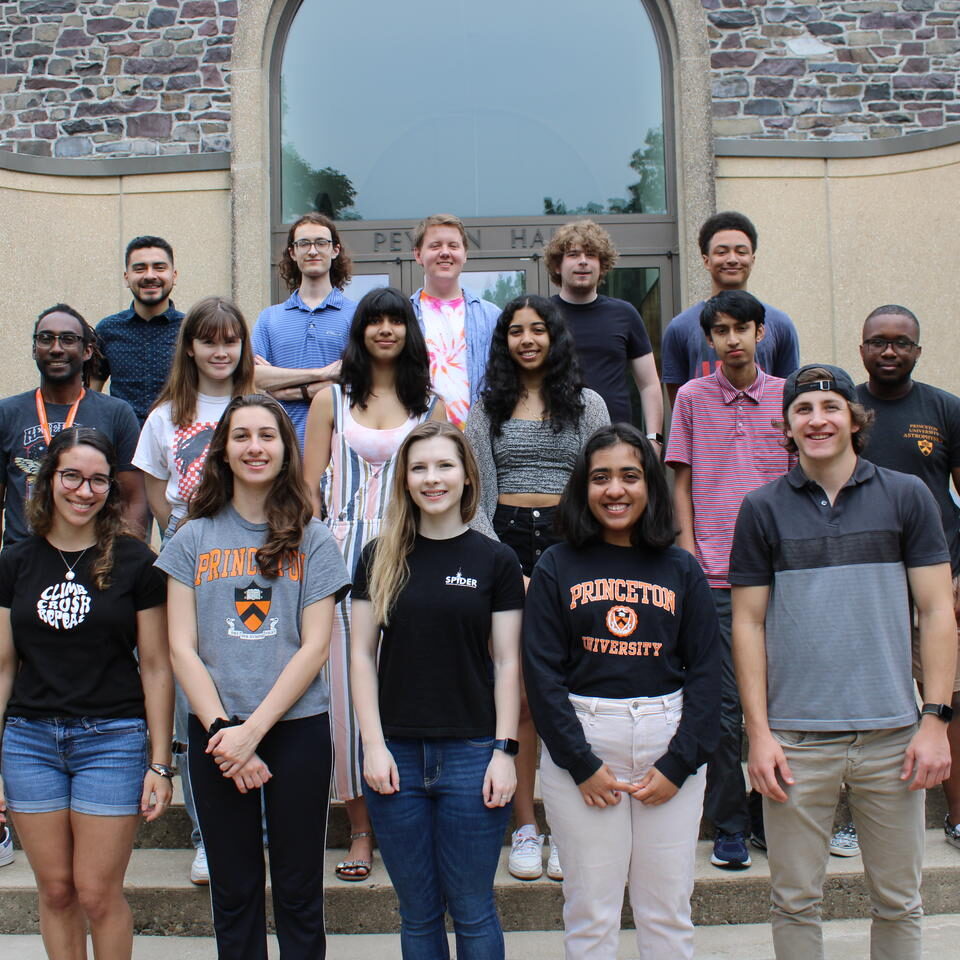
My first summer research experience convinced me to declare my major as Astrophysics and solidified my plan to pursue research as a career after graduation. In 10 weeks, our Astrophysics department taught me how to start and complete a research project culminating in a presentation and paper write-up, with no prior research experience required! It was a particularly good experience to get to focus on research full-time without having to juggle courses, extracurriculars, and more, and it made me feel prepared and hungry to do even more research in the future.
During the summer of 2022, I was a part of the Princeton Astrophysics department’s Undergraduate Summer Research Program (USRP). The program started with me and all of the other participants getting matched with our mentors. I worked with Professor Romain Teyssier, who teaches in both the Astrophysics and Applied & Computational Mathematics departments. We studied shock waves of gas clouds in space by running computer simulations to model gas collisions of different shapes, speeds, and densities. We ultimately made modifications to the algorithm used to create the simulation. These modifications allowed us to see these shock waves in higher detail, thus we can better understand the mechanics of what happens in these types of collisions. I spent the majority of my time creating, debugging, and testing code to improve the results without breaking anything while working with complex algorithms/data structures and maintaining the accuracy of the simulations. This culminated into a final presentation and paper, which I presented at the end of the summer to the rest of the students and various faculty members in the department. Doing all of this was a valuable experience, especially as a sophomore who will have to write Junior Papers next year. My work over the summer helped me feel more prepared going into research projects during the school year, which makes me excited for my fall Junior Paper because I will be more comfortable conducting a research project like this.
USRP also had various seminars and colloquiums where faculty members introduced us to the details of various astrophysics research methods and topics. This included technical details about things like statistics, neutron stars, and gravitational waves, but we also learned practical skills like how to give a presentation, make a readable graph, and apply to graduate school. The variety of topics kept me engaged week after week, and it was refreshing to briefly step away from my project to learn about something different that could still be useful or interesting for our own research topics.
The summer wasn’t all work, though, as we spent time together at an outdoor game night, kayaking on the canal, a telescope observation night, rock climbing, and an escape room. We also had catered lunch together twice a week before our colloquiums and seminars, so we would get a chance to start the day off with all of the students hanging out together over an early lunch, with faculty often joining in the conversation. We would talk about anime, discuss Marvel movies, or play GeoGuesser while relaxing in Grand Central (Peyton Hall’s main common area). All of these casual and fun experiences with the rest of the students made the summer that much better, and I feel much more connected to Princeton’s Astrophysics department and the people in it.
I think that any Princeton students thinking about majoring in Physics or Astrophysics should consider applying to USRP for the summer (and you can share information with any non-Princeton undergraduates you know, as there are quite a few participants from other universities). It gives you a good introductory yet meaningful research project that lets you gauge if a career in research is right for you while learning valuable skills for your project.
More information about Astrophysics USRP is available here, and if you have any questions about the program or anything else Astrophysics department related, you can contact Polly Strauss (pstrauss@princeton.edu), the Academic Program Administrator.
— Xander Jenkin, Natural Sciences Correspondent

